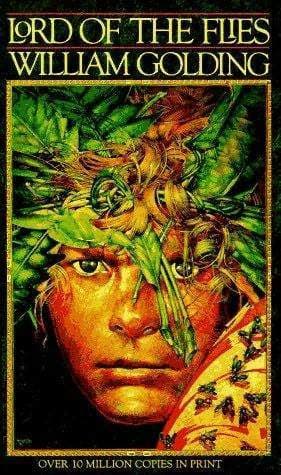
Book Review Summary: Lord of the Flies
Introduction
"Lord of the Flies" by William Golding is a classic novel that has captivated readers since its publication in 1954. The book explores the dark side of human nature and the consequences of leaving individuals without societal rules and structures. It has been praised for its thought-provoking themes, vivid imagery, and powerful storytelling. In this article, we will delve into the book's analysis, reasons for recommendation, and reasons for not recommending it.
About William Golding
William Golding, the author of "Lord of the Flies," was a British writer known for his dark novels and his ability to explore the human condition. He won the Nobel Prize for Literature in 1983 and was recognized for his contributions to literature. Golding's writing style was characterized by his use of symbolism, allegory, and mythology to convey profound themes. His works often challenged conventional beliefs and questioned the nature of humanity.
Analysis of Views
- Startling Portrait of Human Nature: "Lord of the Flies" has been praised for its unflinching portrayal of human nature. Readers appreciate the way Golding presents characters with both angelic and demonic qualities, revealing the complexity and darkness within individuals. The book challenges the notion that people are inherently good and highlights the potential for evil to emerge when societal norms are absent.
- Influence on Modern Thought and Literature: "Lord of the Flies" has had a significant impact on modern literature and thought. It has been compared to J.D. Salinger's "The Catcher in the Rye" in its influence on young readers and its exploration of themes such as identity, morality, and the search for meaning. The book has inspired countless discussions and interpretations, making it a true classic in literature.
- Criticism of White Supremacy: Some readers interpret "Lord of the Flies" as a critique of white supremacy and colonialism. Golding's portrayal of characters as both innocent and savage challenges the idea that dark-skinned people from rural areas are inherently inferior. The book suggests that even those who appear privileged can be susceptible to the darker aspects of human nature.
- Disturbing Themes: While many readers find "Lord of the Flies" thought-provoking and engaging, some find the book disturbing due to its graphic violence and portrayal of children engaging in savage behavior. The book explores themes such as power, manipulation, and the breakdown of civilization, which can be unsettling for some readers.
- Relevance to Contemporary Issues: The themes explored in "Lord of the Flies" continue to resonate with readers today. The book serves as a commentary on issues such as authoritarianism, political extremism, and the potential for violence within societies. The relevance of these themes to contemporary events makes "Lord of the Flies" a timeless work of literature.
Reasons for Recommendation
- Thought-Provoking Themes: Readers recommend "Lord of the Flies" for its ability to provoke thought and challenge conventional beliefs about human nature. The book encourages readers to question their own assumptions about society, morality, and the potential for evil within individuals.
- Powerful Storytelling: Golding's storytelling skills have been praised by readers for their ability to immerse them in the world he creates. The vivid imagery and compelling narrative keep readers engaged throughout the book, making it a page-turner for many readers.
- Influence on Literature: "Lord of the Flies" is considered a classic work of literature that has influenced countless writers and readers. Its impact on modern thought and literature is undeniable, making it a must-read for anyone interested in exploring the depths of human nature.
- Relevance to Contemporary Issues: The themes explored in "Lord of the Flies" continue to resonate with readers today, making it relevant to contemporary issues such as political extremism, authoritarianism, and social unrest. The book provides insights into these complex topics and encourages readers to reflect on their own values and beliefs.
Reasons for Not Recommending
- Disturbing Content: Some readers find the graphic violence and portrayal of children engaging in savage behavior disturbing and do not recommend "Lord of the Flies." They may find it challenging to read due to its unsettling themes and imagery.
- Complexity: "Lord of the Flies" is a complex book that requires careful reading and interpretation. Its symbolism, allegory, and multiple layers of meaning can be challenging for some readers, particularly those who prefer straightforward storytelling.
- Potential for Misinterpretation: Due to its ambiguous nature, "Lord of the Flies" is open to various interpretations. Some readers may find it challenging to fully understand or appreciate the book's intended message, leading to confusion or disagreement about its themes and implications.
Conclusion
"Lord of the Flies" by William Golding remains a provocative and thought-provoking novel that continues to captivate readers today. Its exploration of human nature, societal structures, and the potential for evil within individuals has made it a classic work of literature that continues to resonate with readers worldwide. While some readers find it disturbing or challenging due to its graphic content or complexity, others appreciate its ability to provoke thought, challenge conventional beliefs, and provide insights into contemporary issues. Whether you are a fan of classic literature or simply curious about this influential work, "Lord of the Flies" is a book that deserves your attention.